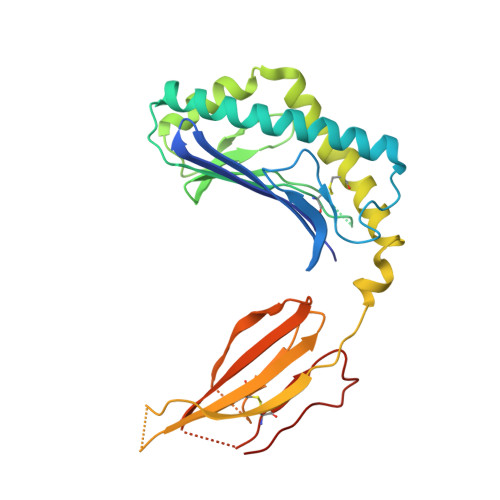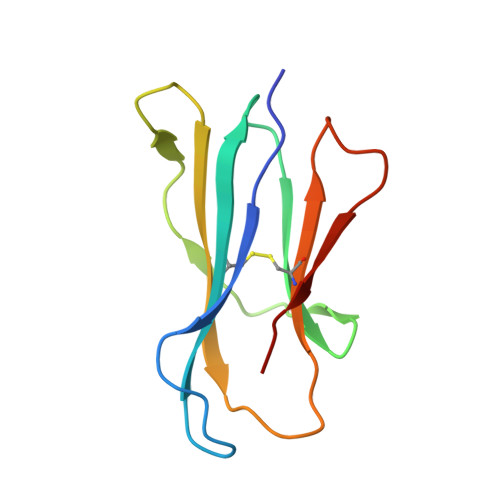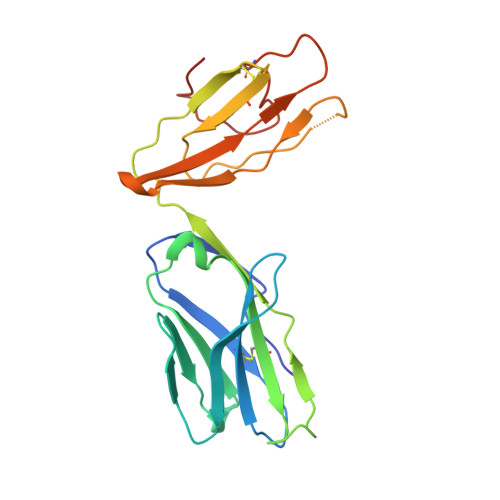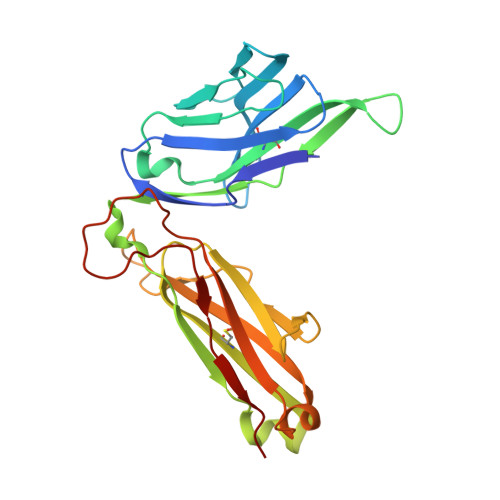Human and mouse type I natural killer T cell antigen receptors exhibit different fine specificities for CD1d-antigen complex
Wun, K.S., Ross, F., Patel, O., Besra, G.S., Porcelli, S.A., Richardson, S.K., Keshipeddy, S., Howell, A.R., Godfrey, D.I., Rossjohn, J.(2012) J Biological Chem 287: 39139-39148
- PubMed: 22995911
- DOI: https://doi.org/10.1074/jbc.M112.412320
- Primary Citation of Related Structures:
3VWJ, 3VWK - PubMed Abstract:
Human and mouse type I natural killer T (NKT) cells respond to a variety of CD1d-restricted glycolipid antigens (Ags), with their NKT cell antigen receptors (NKT TCRs) exhibiting reciprocal cross-species reactivity that is underpinned by a conserved NKT TCR-CD1d-Ag docking mode. Within this common docking footprint, the NKT TCR recognizes, to varying degrees of affinity, a range of Ags. Presently, it is unclear whether the human NKT TCRs will mirror the generalities underpinning the fine specificity of the mouse NKT TCR-CD1d-Ag interaction. Here, we assessed human NKT TCR recognition against altered glycolipid ligands of ¦Á-galactosylceramide (¦Á-GalCer) and have determined the structures of a human NKT TCR in complex with CD1d-4',4¡å-deoxy-¦Á-GalCer and CD1d-¦Á-GalCer with a shorter, di-unsaturated acyl chain (C20:2). Altered glycolipid ligands with acyl chain modifications did not affect the affinity of the human NKT TCR-CD1d-Ag interaction. Surprisingly, human NKT TCR recognition is more tolerant to modifications at the 4'-OH position in comparison with the 3'-OH position of ¦Á-GalCer, which contrasts the fine specificity of the mouse NKT TCR-CD1d-Ag recognition (4'-OH > 3'-OH). The fine specificity differences between human and mouse NKT TCRs was attributable to differing interactions between the respective complementarity-determining region 1¦Á loops and the Ag. Accordingly, germline encoded fine-specificity differences underpin human and mouse type I NKT TCR interactions, which is an important consideration for therapeutic development and NKT cell physiology.
Organizational Affiliation:
Australian Research Council (ARC) Centre of Excellence in Structural and Functional Microbial Genomics, Department of Biochemistry and Molecular Biology, School of Biomedical Sciences, Monash University, Clayton, Victoria 3800, Australia.






















